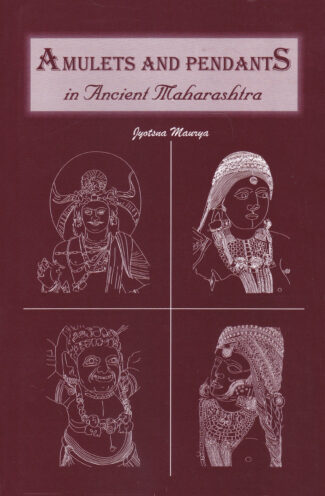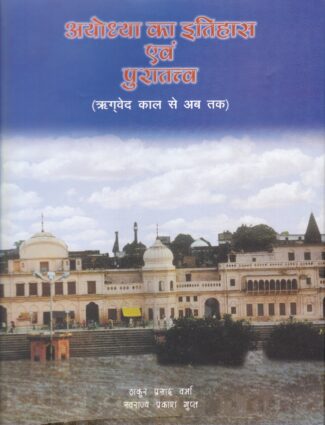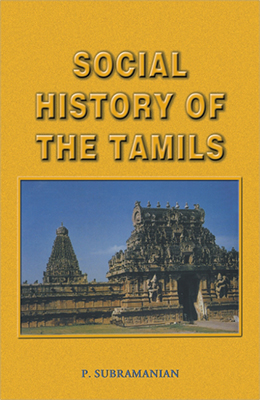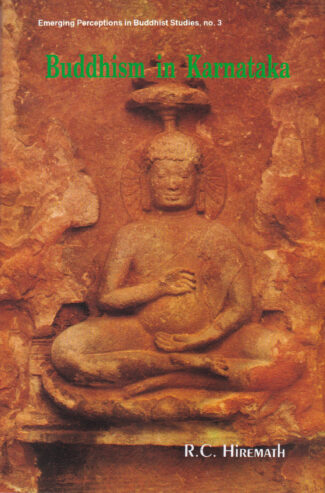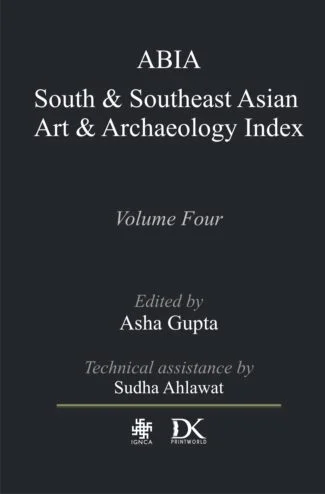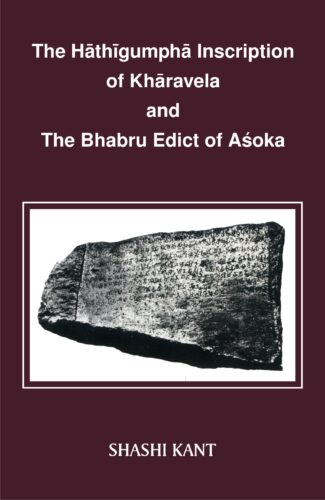

Hathigumpha Inscript...
Hathigumpha Inscription of Kharavela and the Bhabru Edict of Asoka
A Critical Study by: Shashi KantIt examines the date, authorship and decipherment of the epigraph that throw light on Jain and Buddhist scriptural traditions and Asokas association with Buddhism as also the socio-political conditions during the three centuries before Christ.
Original price was: ₹650.00.₹585.00Current price is: ₹585.00.
ISBN: 9788124601396
Year Of Publication: 2018
Edition: 2nd
Pages : xxiv, 168
Bibliographic Details : 19 B/w photographs; 2 Folded maps; Appendices; Bibliography; Index
Language : English
Binding : Hardcover
Publisher: D.K. Printworld Pvt. Ltd.
Size: 23 cm.
Weight: 450
Ever since its discovery in ad 1825, Kharavelas Hathigumpha Inscription has had a fascinating course. It is not a royal panegyric merely; it is an epitome of history, specially of the so-called dark period unveiling, as it does, the political and cultural conditions that prevailed in India during the three centuries before Christs birth. And yet more significantly, it is the only hitherto-known document to tell the saga of its heroic author: the first historical king from Indias eastern coast to lead extensive campaigns in different directions. But for this inscription, Mahameghavahana Kharavela could never have been resurrected from oblivion. Likewise personal in character is Ashokas Bhabru Edict, considered as the earliest written record of Buddhist scripture and monastic organisation. For the history of Buddhism, this little document is as important as the Kharavelas Hathigumpha Inscription is for that of Jainism. Shashi Kants study examines afresh these inscriptions: not just for their thematic similarity, but essentially for their crucial historicity. Going into their tenor and context, it is the first ever decipherment/interpretation of the two rare documents, with the whole Jaina and Buddhist traditions in the background. The author demolishes myths, addresses controversies and, these besides, offers convincing theories that are authenticated by recent archaeological findings. Acclaimed and favourably reviewed in India and elsewhere alike, this epigraphic study is now in its second, enlarged edition including a whole new section on the genesis of the Prakrit languages and the ancient Indian scripts. Together with the original epigraphs, their romanised transliteration and English translation, it holds out immense appeal to the scholars of ancient Indian history, epigraphy, archaeology, and Buddhist-and-Jaina studies.
Foreword
Preface to the Second Edition
Preface to the First Edition
Critique
Abbreviations
Transliteration Chart
List of Plates
Maps
Section 1
The Hathigumpha Inscription of Kharavela
1. The Inscription
Introductory
Decipherment
Site
Text
Translation
2. The Date of the Inscription and its Author
3. Kharavela
Personal History
Campaigns
Dominions
4. Socio-Political Conditions
5. Jainism
6. Epilogue
SECTION II
The Bhabru Edict of Ashoka
1. Discovery, Text and Translation
2. Magadhe or Magadham
3. Identification of Scripture
4. Buddhism and Ashoka
SECTION III
Prakrit and Brahmi
1. Genesis of the Prakrit Languages
2. Tradition of Writing, and Scripts, in Ancient India
Appendix I
Appendix II
Appendix III : Additional Notes
Appendix IV : Chronology
Appendix V : Transcription Chart of Brahmi Script
Appendix VI : Symbols in the Hathigumpha Inscriptions
Bibliography
Index



